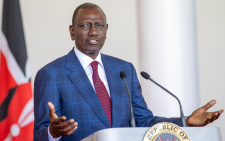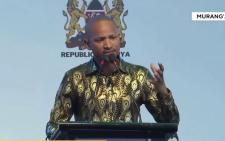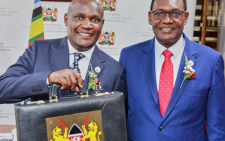Business activity rebounds in August on surging sales

Stanbic Bank Kenya Purchasing Managers Index (PMI) rose to 50.6 last month from 45.5 in July for the first time in seven months, signalling a slight turnaround in fortunes for the country’s private sector.
Standard Bank’s economist Christopher Legilisho attributed the recovery to the return to expansion of output and new orders, amid greater political stability.
However, he said the improvement in business conditions was mild and continued to be weighed down by elevated price pressures as input prices rose at an historically strong pace, leading to the fastest increase in selling charges since June 2022.
At 50.6 in August, up from 45.5 in July, the headline PMI signalled an expansion in business conditions for the first time since January. However, the index was only slightly above the 50-mark indicating that the expansion was only marginal.
Readings above 50 signal an improvement in business conditions on the previous month, while readings below 50 show a deterioration. “Tough business conditions and inflation pressures remain a pressing concern for Kenyan businesses, as input prices and staffing costs were seen rising due to a weaker exchange rate as well as higher taxes related to the recently enacted tax measures in the Finance Act,” Legilisho said.
As of August, the shilling was quoted at Sh145.05 per unit against the US dollar for buying and Sh145.25 for selling, equivalent to a 17.66 per cent depreciation.
A weaker shilling ended up affecting the quantity of aggregate demand in the economy during the period under review, amid increasing cost of imported raw materials, a factor Legilisho said led to higher production costs and lower output.
Higher taxes on consumers also reduced disposable income, leading to a decrease in demand for goods and services. The PMI survey indicated that in the review period, inflationary pressures were still historically marked and continued to hit business expenses, with close to 38 per cent of firms witnessing a monthly rise in their input costs, marking one of the sharpest rates of cost inflation in the survey’s near-decade history.
Panellists often linked higher costs to sustained currency weakness, although increased fuel prices and higher taxes were also mentioned.
According to the PMI survey, there was a notable expansion of output in services and manufacturing sectors, with export orders received by firms rising for a sixth straight month. Purchasing managers interviewed noted that improved food supply, increased marketing of products and a calm political environment supported new orders growth.
The improved political environment following a ceasefire between the opposition led Azimio La Umoja Coalition Party and the ruling Kenya Kwanza have positively impacted Kenya’s output and new orders by providing stability and certainty for businesses and investors.
“Quantities purchased increased marginally, in line with output and new orders, while suppliers’ delivery times improved as vendors delivered items timeously to improve their cash positions,” the survey indicated.
According to the managers, inflows of new work expanded over the course of August, ending a six-month sequence of decline.
However, the rate of growth was only fractional, as improvements arising from reduced political unrest and stronger demand conditions were almost completely offset by the negative impact of price increases












